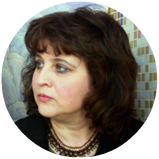The article examines the phenomenon of New Age as a part of new religious movements through the prism of reflecting in it certain characteristics of the postmodern era and the features of the philosophy of postmodernism, showing two trends in the development of modern groups of new age. The author allocates two main tendencies in development of New Age: strict “lean” towards “classical” new religious movements and, on the contrary, withdrawal from “religious perspective”, loss of separate “religious lines” inherent at a stage of formation and initial existence of the organization with gradual evolution to not religious (secular) form of such organization. In detail, the example of the “Radasteya” organization examines one of these trends – the evolution from New Age to a non-religious type of organization. On the basis of results of sociological poll, the author made a conclusion about lack of signs of religious component in the activity of the Institute of rhythmology, the successor of “Radasteya”; people visiting the Institute are not aimed at satisfaction of religious requirements, do not consider Institute the religious organization, do not perceive it as a sacred place. About a third of the respondents consider themselves believers and declare belonging to the traditional religious branches of Russia, or report about the extra confessional religiousness. Respondents do not perceive the leader of this movement as a saint (sacral) person, or a goddess, allocating her with quite terrestrial characteristics. Now the Institute of rhythmology represents secular (extra-religious) public organization and carries out the activity according to own rule made by reference to non-religious purposes and tasks of the Institute.
Keywords: New Age, new religious movements, postmodern era, postmodernism, “Radasteya”, Institute of rhythmology, religious organization
DOI: 10.22250/2072-8662.2018.1.36-51
About the author
 |
Ekaterina S. Elbakyan – DSc (Philosophy), Senior Researcher, Head of the Center for Religious Studies «ReligioPolis»; Moscow, Russia; This email address is being protected from spambots. You need JavaScript enabled to view it. |






